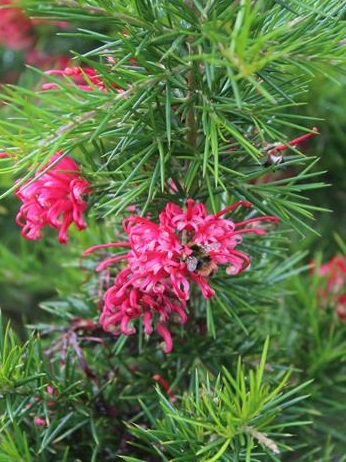Become a specialist in hardy ornamentals
Having an in depth knowledge of hardy ornamentals is useful for people working in horticulture, garden centres, nurseries, stately homes, running ornamental gardens or people studying for their own personal interest. This foundation diploma in hardy ornamentals is jam packed with detailed information and knowledge of hardy ornamentals, such as ferns, roses, conifers and more.
This course requires the completion of ten 100 hour modules. There are nine core modules – Azaleas and Rhododendrons, Geraniums and Pelargoniums, Growing Camellias, Growing Iris, Conifers, Deciduous Trees, Ferns, Perennials and Roses. Then choose one elective module from Annuals and Cut Flowers.


How is the course assessed?
The course is assessed by the completion of assignments and exams.
There is an assignment at the end of each lesson, that is submitted to your tutor for marking and feedback. For example, Azaleas and Rhododendrons has eight lessons, so there are eight assignments.
There is also an exam at the end of each module, so ten in total. Exams can be taken at a time and location to suit you.
Start Date
You can start the course at any time to suit you and work through the course at your own pace.
Working with Hardy Ornamentals
One thing that separates professional horticulturalists from home gardeners is the breadth of their plant knowledge. This is not to say that amateurs are not knowledgeable because there are many genuine experts growing and learning about their plants in their back gardens and becoming world-class experts in a genus or part of a genus. In fact many professionals are also part-time geeks in their own personal obsession.
However, when you are earning your living from gardening you have to know about any plant that you may come across in either your employer’s garden or in the gardens of your clients. This means that you need a broad education and you need a structured course to cover the diversity of plants that you are most likely to come across. The great advantage of a well thought out study programme is that it makes you look at the plants properly.
I recently received an email from an old friend asking me to explain the flowers of the English sycamore (Acer pseudoplantanus). She was painting them and she did not like the fact that they are asymmetrical with five sepals and petals but eight stamens and two immature fruits. I realised that I had never looked at the flowers of a sycamore, despite having pulled up literally 100s of seedlings this spring. My friend was absolutely right about the number of parts in the flowers but was wrong to think that all flowers are symmetrical. Without this prompting I would not have found the time to look at the flowers and one of the great benefits of taking distance learning courses is that they prompt you to look and learn.
Gardens in the UK contain more than 70,000 different plants. Becoming familiar with them all is an impossible task. The best “plantsman” I know could recognise about half of them to family and genus but certainly not species. To be a plantsman is the goal of many professional gardeners. By dividing the plant kingdom into manageable groups the task of learning about the plants we grow in our gardens becomes a very productive because plants in botanical groups have many things in common. While you may not be able to identify every rhododendron and azalea you can learn how to cultivate them all successfully.
This foundation diploma is a wonderfully comprehensive course that will equip any professional gardener with the knowledge necessary to become a plantsman and along the way you will become well acquainted with some of the most beautiful products of evolution!
If you would like to become an expert in hardy ornamentals, then this could will provide you with the knowledge and skills you need.
Any questions? Please don’t hesitate to contact our horticultural tutors. They are more than happy to answer any questions about the course
Click here for FREE COURSE COUNSELLING